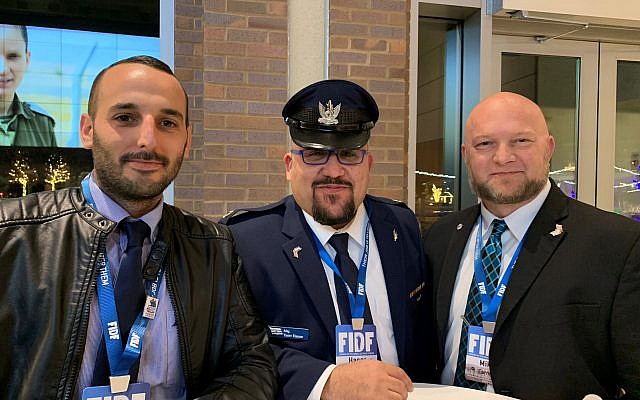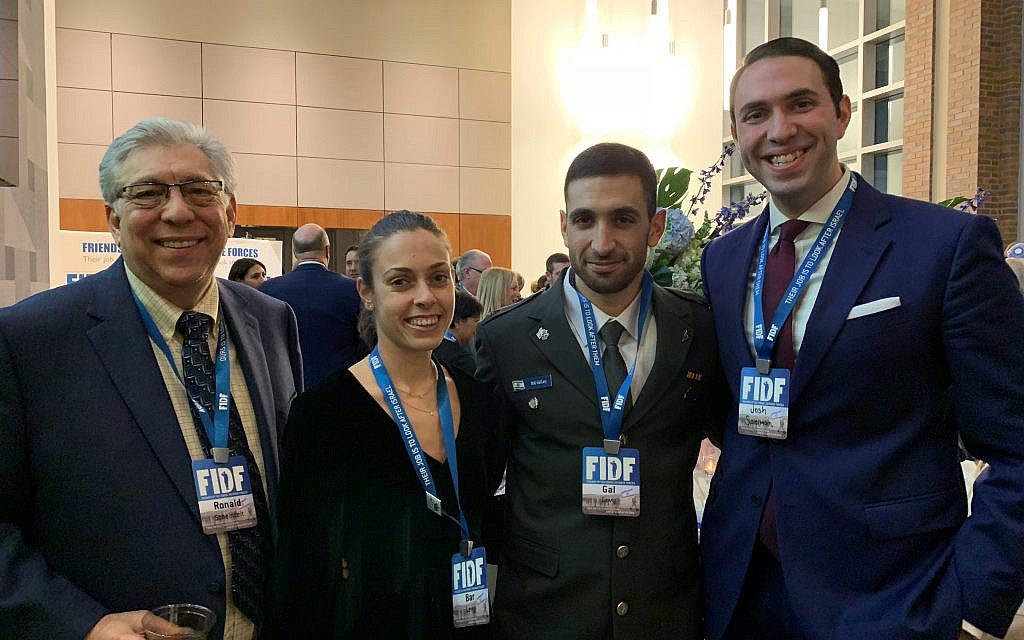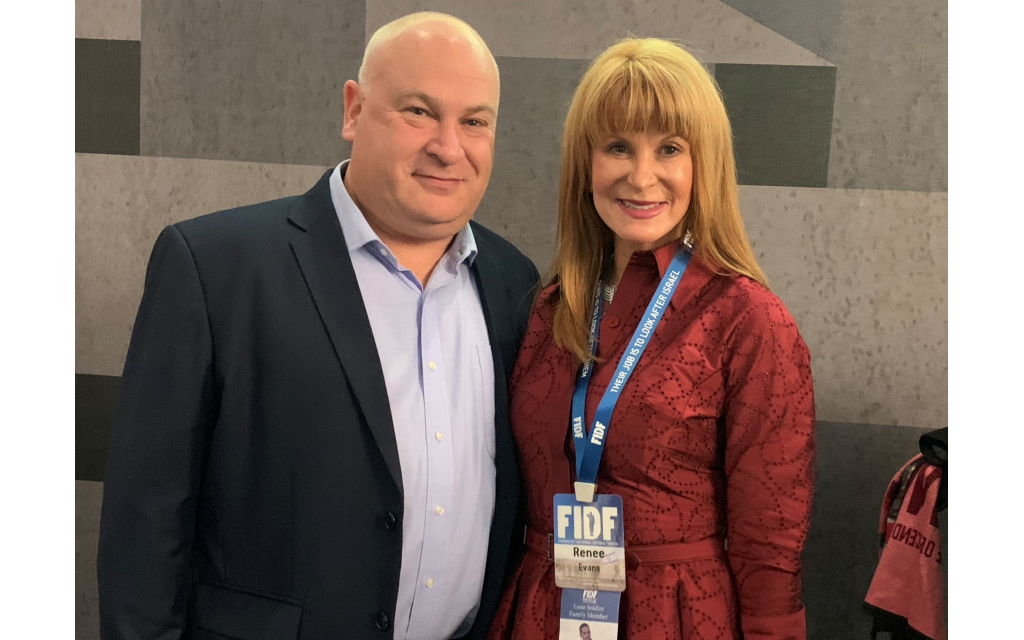IDF Legends Inspire Atlanta’s FIDF
Friends of the Israel Defense Forces delivered a riveting program for its annual donor appreciation event, “Legends and Heroes of the IDF,” on Dec. 10 at City Springs.
After 37 years with the Atlanta Journal-Constitution and now with the AJT, , Jaffe’s focus is lifestyle, art, dining, fashion, and community events with emphasis on Jewish movers and shakers.

Friends of the Israel Defense Forces delivered a riveting program for its annual donor appreciation event, “Legends and Heroes of the IDF,” held Dec. 10 for the first time at City Springs. The keynote speaker was Brig. Gen. (Res.) Eli Ben Meir, the man who was credited with taking out the Syrian nuclear reactor. In 2007, he masterminded Operation Outside the Box, which resulted in the destruction of the Syrian radar site in Tall al-Abuad.
During the pre-program reception, current IDF members, lone soldiers, and retired military mingled with avid FIDF supporters. “One of the first things I did upon moving to Atlanta was to seek out this organization as a top priority,” said attorney Joshua Spielman, who is new to the city. “I have relatives who served in the IDF and believe the FDIF’s mission to be critical.” Ronald Scheinzeit agreed, “Every FIDF event has been super special.”
Rabbi Michael Bernstein of Congregation Gesher L’Torah kicked off the program by connecting the occasion to lighting Chanukah candles. “The IDF is an ongoing miracle that is sometimes hidden. We act as the ‘shamash’ (helping candle) so the light can shine and be seen.”
Seth Baron, FIDF Southeast region executive director, thanked the audience for fulfilling its call to support the soldiers. “Our job is to look after them. Their job is to look after Israel.”

Baron recognized Bobby Cohen, the national FIDF president, who came for the event from Washington, D.C. Baron had just returned from a visit to Israel where he met with the brigadier general and colonel for the FIDF Southeast’s adopted Combat Intelligence Corps and witnessed live-fire exercises as the IDF’s special forces commando units were involved in a 10-day exercise in both the north and south of Israel. “They praised our work back home and shared our one goal of protecting the State of Israel and staying strong,” Baron said.
A video was shown to describe the touching, now defunct Operation Good Neighbor, where Israel’s soldiers helped thousands of Syrians who approached the border fence in search of support and medical treatment. Over three years, tons of food, diapers (180,000 cases, for example), clothing, and medical care were supplied by the IDF. “We could not be bystanders and watch 200,000 Syrians suffering during their civil war (2013-16) in the Golan without helping them,” said Maj. Efi Ribner, who was part of the lead team at the Syrian border. “In July of 2018, when Israel was approached to covertly rescue the Syrian White Helmets humanitarian forces that had been declared ‘enemies of the state’ by the Syrian government, there was no question of what to do. We escorted 500 of them into Israel, then on to Jordan for safety. These Syrians were frightened, but trusted us, who they had been taught was their sworn enemy, and fled everything they knew with nothing but their passport and clothes on their back. … Our goal is to change hearts and minds.”
Garry Sobel, Southeast regional FIDF chair and member of the FIDF national board of directors, spoke of his deep personal connection to IDF soldiers and the 40 lone soldiers serving in the Atlanta area. “That is the power of our impact on the IDF. We are moving hearts and moving the needle. FIDF Southeast region grows dramatically every year. For four years in a row, we have topped $1 million in donations, and with the three weeks remaining in 2018, we plan to hit $1.7 million in this final push.”

As chief of the IDF Intelligence Corps starting in 2005, Ben Meir explained his role in overseeing the intelligence arm that identified the Syrian nuclear reactor. He detailed the political and military considerations that made it difficult to convince Israel’s military and government of the reactor’s existence. And he outlined the events that led to the decision to destroy the reactor 11 years ago.
When Ben Meir’s team members initially approached him with intelligence about a nuclear reactor, he had a gut feeling that this was significant. Over time, his regular briefings with the prime minister shifted the operation from unlikely to necessary. When the United States was approached, then President George W. Bush said that the U.S. would not join in the attack, but that Israel could do “what needed to be done.” Based on the advancement of a water pipe used for cooling the reactor, and fearing exposure of its covert plan, Israel convened an emergency cabinet meeting to approve the classified strike.
Amid Israel’s denial of the strike, Ben Meir had to keep the details secret until the operation was declassified last year. In response to more immediate news, Ben Meir explained the rising pressure with Iran, which now has expanded power. “They have dozens of sites … and now control five capitols in the Middle East.”
In terms of his military accomplishments, Ben Meir concluded, “I was lucky to be at the right place at the right time. Napoleon himself said, ‘I like to pick lucky generals.’”



comments